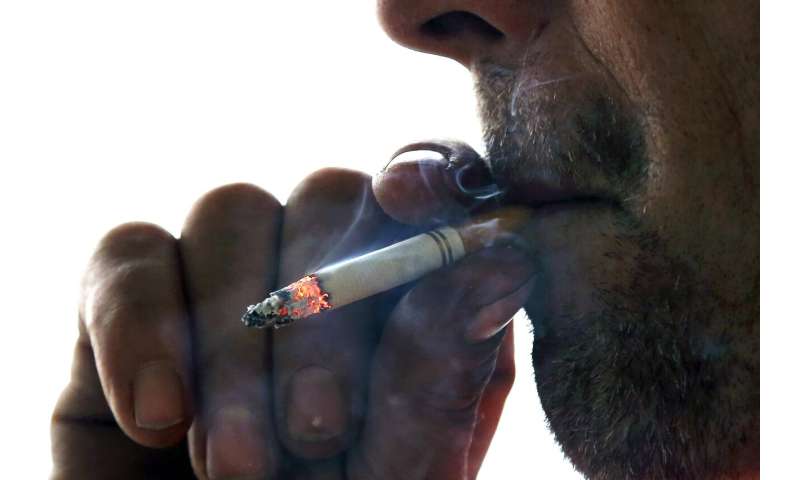
Massachusetts became the first state to ban the sale of flavored tobacco and vaping products, including menthol cigarettes, after the Republican governor signed a bill Wednesday that responds to recent deaths linked to e-cigarettes and attempts to reduce their appeal to young people.
Anti-smoking groups hailed the ban signed by Gov. Charlie Baker, which outlaws the sale of flavored vaping products immediately and of menthol cigarettes starting June 1, 2020.
Some states have temporarily banned or restricted flavored tobacco or vaping products to different degrees, but Massachusetts is the first state with a permanent ban in place, anti-smoking groups say. Especially notable is its ban on menthol, which is among the most popular flavors and has often been exempted from bans.
The bill is a “major step forward,” Baker said, but states can do only so much to address the public health emergency around e-cigarettes and other vaping products. The federal Centers for Disease Control and Prevention and the Food and Drug Administration are the only ones that can address the issues comprehensively, he said.
President Donald Trump has promised for months to approve a national ban on most flavored e-cigarettes. But in recent weeks his administration canceled a planned announcement of a ban, and Trump has said he will meet with the vaping industry and medical professionals instead.
“It’s pretty clear there isn’t going to be a federal policy on this anytime soon,” Baker said Wednesday. “So in the absence of that, we had to act.”
The New England Convenience Store and Energy Marketers Association, which had opposed the legislation, said in a statement the ban will disproportionately affect communities of color and cost the state hundreds of millions of dollars in tax revenue.
Studies have shown menthol cigarettes are consumed disproportionately by young people and minorities, and anti-tobacco groups and health experts have argued menthol has been marketed in particular to African Americans.
The law’s new restrictions on flavored tobacco products are important because they have helped the traditional smoking market grow and led to the flavored vaping products popular with youths, state Attorney General Maura Healey said.
“This is not a nanny state effort,” said Healey, a Democrat. “This is a significant public health effort.”
The American Cancer Society’s Cancer Action Network said it hoped the new law would send a message to an industry accused of using flavored products to introduce teenagers to smoking.
“More than 80% of teens who have ever used a tobacco product started with a flavored product, and the tobacco industry knows this,” the organization said in an emailed statement.
Matthew Myers, president of the Campaign for Tobacco-Free Kids, called it “a critical step to help end the worsening youth e-cigarette epidemic and stop tobacco companies from using appealing flavors to lure kids into a lifetime of addiction.”
The law places a 75% excise tax on vaping products and require health insurers, including the state’s Medicaid program, to cover tobacco cessation counseling.
The legislation responds to growing concern about the health effects of vaping products, including deaths whose exact cause is still being investigated.
Source: Read Full Article





